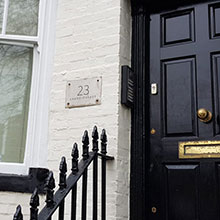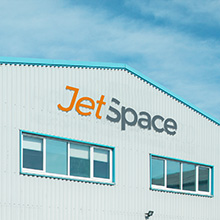
Downsize Smarter, Not Harder
Why Smaller Serviced Offices are the New Headquarters for Hybrid Businesses
The modern office is no longer defined by rows of desks or fixed headquarters.
As hybrid and remote working continue to reshape how businesses operate, SME leaders across the South East are rethinking what they really need from a workspace. With fewer people in the office full-time, downsizing isn’t just an option – it’s becoming a smart, strategic move. The growth of both coworking spaces and serviced offices is making this shift not only possible, but practical.
So why does downsizing make sense for hybrid SMEs, how do serviced offices offer cost efficiency and what do today’s employees really want from their workspaces? Let’s take a look.
The End of the Desk-for-Every-Employee Era
Setting the Scene: Hybrid Work is the Catalyst for Change
The global shift to hybrid working didn’t happen overnight but the pandemic certainly accelerated it. What began as a necessary response to lockdowns has evolved into a permanent feature of modern business.
According to recent studies, 63% of UK workers are at least part remote in their working schedules in 2025. Flexible working has moved from a perk to an expectation, and it has changed the way businesses think about physical space. If the workforce isn’t in the office five days a week, why maintain the infrastructure for them as if they were?
This isn’t just about hot-desking or remote logins. It’s a structural change in how companies operate, one that challenges the traditional idea of the “headquarters” entirely.
The Downsizing Imperative
As work patterns have shifted, so too have business leaders’ expectations. In fact, 50% of facilities managers have anticipated the need to downsize their physical office footprint within the next three years as a direct result of hybrid working.
With fewer people in the office at any one time, providing a permanent desk for every employee no longer makes financial or strategic sense. Shared workstations, team hubs and collaboration zones are replacing the traditional sea of desks.
We’re already seeing this shift in action. Companies with more than 200 employees are moving into offices that are, on average, 7.5% smaller than those they previously occupied. That percentage may sound modest – but it signals a much larger trend: offices are no longer about accommodating everyone, every day. They’re about supporting meaningful, purposeful in-person work when it counts.

Why Serviced Offices Are the Ideal Downsizing Solution
Serviced Offices vs. The Traditional Lease Model
For businesses looking to downsize smartly, serviced offices offer a compelling alternative to the traditional commercial lease, as we’ve previously explored.
Unlike conventional offices, which typically involve long lease commitments, upfront capital investment and the burden of managing utilities, maintenance and fit-outs, serviced offices provide a turnkey solution. Ready to move in and available on flexible terms, they eliminate much of the operational complexity of running an office.
This “plug-and-play” model allows businesses to get to work immediately, whether they need space for 2 people or 200. It’s especially attractive for hybrid businesses that need flexibility over fixed square footage.
The traditional approach may have made sense in a world of predictable 9–5 office use – but today, serviced offices provide the speed, simplicity and scalability modern SMEs need.
Financial Agility and Cost Efficiency
Downsizing is often driven by the need to reduce overheads and this is where serviced offices really shine.
- No Upfront Costs: Traditional leases can involve tens (or hundreds) of thousands of pounds in deposits, fit-outs and infrastructure. Serviced offices avoid these costs entirely.
- All-Inclusive Pricing: One predictable monthly fee covers everything rent, utilities, cleaning, maintenance, internet and security, making it easier to manage budgets and avoid surprise expenses.
- Better Use of Space: With a flexible layout and the option to scale up or down, serviced offices help businesses avoid paying for space they don’t use – a common issue with fixed-term leases.
- Short-Term and Long-Term Value: Even if a business only needs office space for a short period, serviced offices can deliver significant savings without the risk or hassle of breaking a long lease.
In uncertain economic conditions, this financial agility can make the difference between weathering a storm or being locked into an oversized, underused HQ.
Addressing Strategic Portfolio Needs
Hybrid working has also triggered a rethink of office location strategies. Many businesses are shifting from a centralised HQ to a “hub-and-spoke” model – with smaller regional offices closer to where employees live.
Serviced offices are a natural fit for this approach. With buildings already operational in towns and cities across the UK, they allow businesses to quickly establish a presence in new areas without the cost and time commitment of setting up from scratch.
This is especially useful for:
- Testing new markets
- Reducing commute times for regional staff
- Supporting recruitment efforts across a wider geography (and being able to attract and retain top talent)
Meanwhile, the managed office model – essentially a customised, private version of a serviced office – is booming. In fact, there’s been an 895% increase in managed office supply in Central London since 2019, largely driven by larger firms looking for flexible but branded, standalone spaces.
For SMEs, this opens up an exciting opportunity to access the kind of premium, scalable office experience that was once reserved for big corporates.

Business Benefits: Quality, Talent and Strategy
The “Flight to Quality” Paradox
One of the most surprising trends in the post-pandemic office market is that as businesses downsize, they’re often choosing higher-quality office spaces.
Rather than simply shrinking their footprint to save money, many companies are using the opportunity to upgrade – relocating to modern, sustainable and well-located buildings that better reflect their brand and support employee expectations.
This trend, known as the “flight to quality”, recognises that the office is no longer just a place to sit at a desk and should be considered a strategic asset. Even if the total cost of space increases slightly, businesses view the investment as worthwhile. Why? Because it helps them:
- Attract and retain top talent
- Boost team morale and productivity
- Reinforce company values through space and design
Ultimately, a smaller, smarter space in the right environment can deliver more value than a larger, underused one.
Creating a Collaborative and Purpose-Driven Workplace
In the hybrid era, the function of the office has shifted from where work gets done to why people come together.
Without the need for desks for all, office spaces are being reimagined as hubs for:
- Collaboration
- Culture-building
- Face-to-face connection
And the layout of these spaces is changing too. Whereas 20 years ago, 70% of office space was dedicated to individual workstations, by 2030, it’s expected that number will drop to 40%, with the remaining 60% focused on shared spaces like meeting rooms, breakout areas and team zones.
Serviced offices are already ahead of this curve. Their layouts are designed to maximise shared space, support team-based work and create a more dynamic and energising atmosphere – all without the business needing to make costly structural changes.
Benefits for Hybrid and Remote Staff
Enhanced Work-Life Balance
Hybrid working may offer more freedom, but that freedom is only valuable if it leads to better balance.
For many employees, long commutes are one of the biggest barriers to productivity and wellbeing. Serviced offices – particularly those located in regional hubs like Brighton or Shoreham – give staff the opportunity to work closer to home without sacrificing professionalism or structure.
This “working near home” trend is reshaping daily routines. In fact, regions like the Midlands have seen a 25% increase in demand for local flexible space, driven by employees who want the best of both worlds: a quiet, well-equipped space that doesn’t require a two-hour train journey or moving somewhere that costs twice as much.
By tapping into serviced offices outside of central London, businesses can offer a meaningful improvement to their teams’ mental health, focus and daily satisfaction.
Amenities and Experience as Recruitment Tools
Today’s workforce expects more from an office than four walls and a Wi-Fi connection.
Modern employees – particularly Gen Z – increasingly factor in workspace quality and amenities when considering job offers. Serviced offices can often meet this demand by offering better locations, customisable comfortable interiors and communal coffee areas that foster a sense of community.
These features create a professional, energising environment that home setups often can’t match – especially for staff juggling childcare, pets or noisy, distraction filled households.
For SMEs competing in a tight talent market, access to well-designed, well-located serviced offices can be a real differentiator.

Fostering Connection and Networking
One concern with hybrid and remote work is the risk of employee isolation. But flexible workspaces can help bridge that gap.
Serviced office environments are designed to foster interaction, both formally and informally. Whether it’s bumping into someone in a shared kitchen, attending a networking event or chatting with another founder in the hallway, the opportunities for connection are built in.
This can be especially valuable for:
- Smaller businesses looking to expand their networks
- Freelancers or remote workers seeking community
- Younger employees looking to raise their visibility within the company
Being physically present – even just a few days a week – can make a big difference in how employees are perceived, included and developed. And employees recognise this too. In fact, Gen Z workers overwhelmingly prefer to have at least some in-office time with only 16% preferring to be fully remote.
Flexibility as a Long-Term Strategy
The way we work has changed and office strategies are changing with it.
As hybrid working remains the norm (despite many larger companies pushing to revert to the pre-pandemic status quo), more SMEs are leaving behind oversized headquarters in favour of smaller, smarter serviced offices that reflect how teams actually use space. This isn’t a temporary fix, it’s a long-term shift in how businesses think about productivity, collaboration and cost-efficiency.
To recap, serviced offices provide:
- A more agile and cost-effective alternative to traditional long-term leases
- High-quality environments that can support collaboration, attract talent and build culture
- Hybrid-friendly solutions that improve work-life balance and keep employees connected
For growing businesses in Brighton, Shoreham and across the South East, the next step is clear: choose office space that adapts as fast as you do.
Looking to downsize or expand into flexible office space?
Find out about our current availability for serviced office space in Brighton and Shoreham and discover how JetSpace can help future-proof your business.
Call on 01273 917977 or complete our enquiry form
enquire book a viewing

